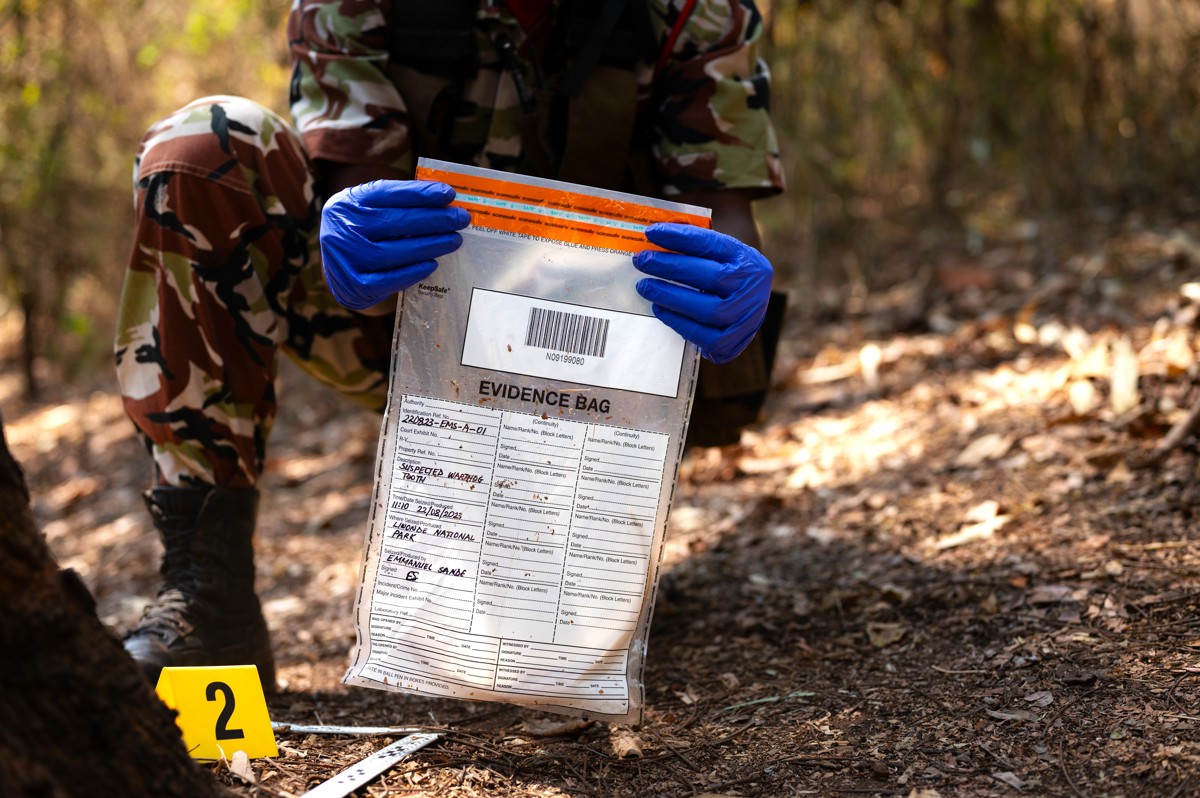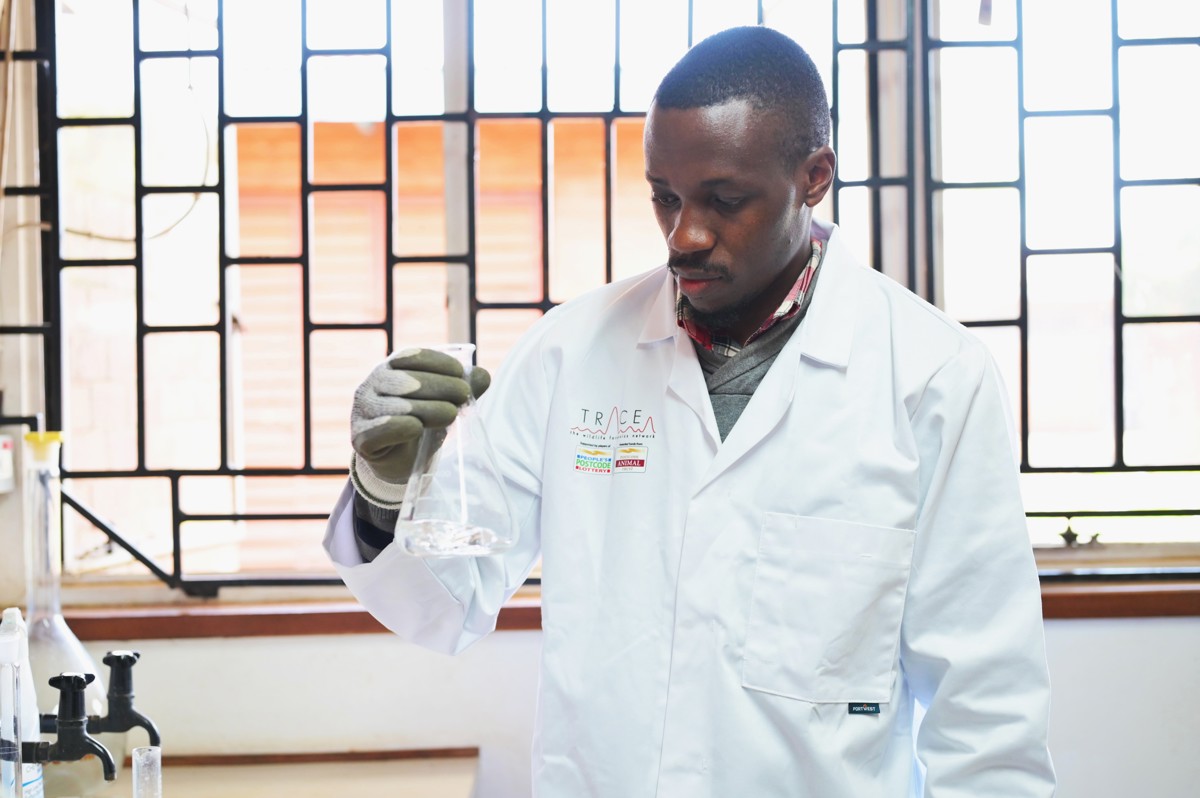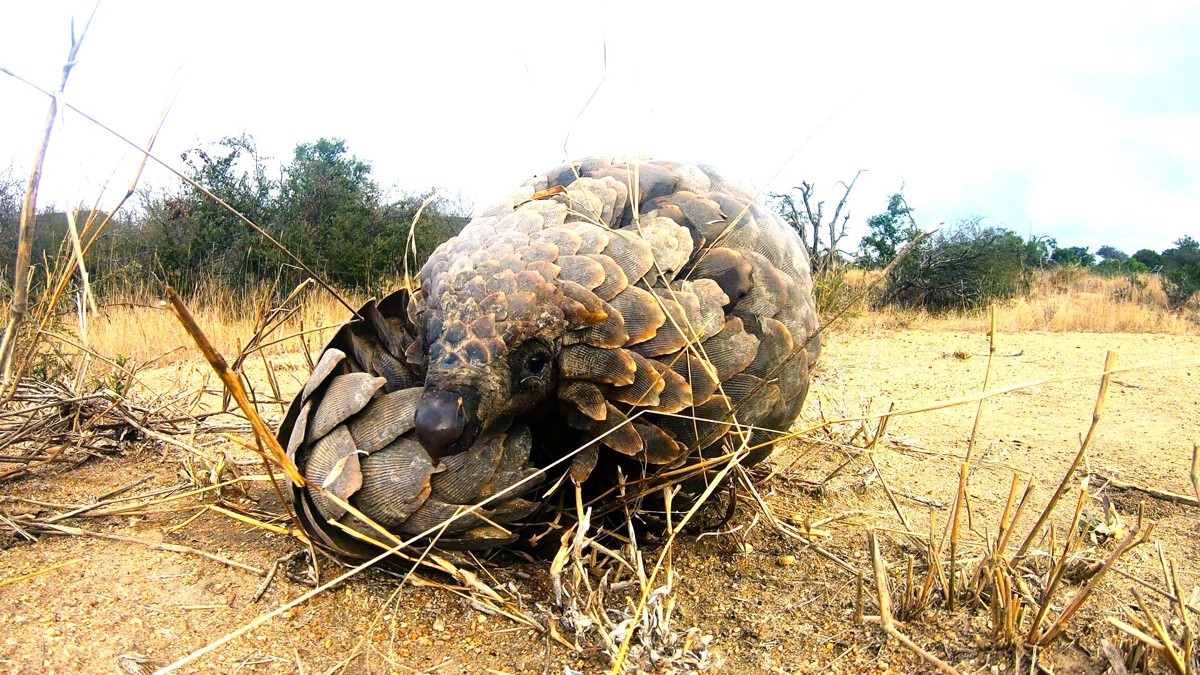20 November 2023
Share this story
Every day hundreds of thousands of threatened species - mammals, birds, fish and reptiles - are being slaughtered around the world for their tusks, horns, skins and scales. Such is the sheer magnitude of the illegal trade that wildlife rangers in parks and sanctuaries, particularly in Africa, face a round-the-clock battle to snare the perpetrators.
International wildlife trafficking – via land, air and sea - is estimated to be worth up to $23 billion every year.
But authorities are fighting back and now Edinburgh-based TRACE Wildlife Forensics Network, working with TRAFFIC International, have helped develop Malawi’s first wildlife forensic lab.
The new facility, which was made possible thanks to funding from players of People’s Postcode Lottery, will see the UK team sharing their world-leading knowledge of the latest evidence-collection and analysis techniques along with training local scientists on the ground to help prosecute offenders.
Professor Rob Ogden, a conservation scientist from TRACE, said “This is a major step forward in the fight against wildlife crime as we are now seeing forensic evidence leading to successful prosecutions.
“It is hugely challenging work but with the support and collaboration of multiple partners including local governments, wildlife rangers, laboratories, and local organisations such as Lilongwe Wildlife Trust, alongside TRAFFIC and Postcode Lottery players, we are starting to see impact in countries like Malawi.”
The TRACE team of 16 works across the globe to support countries to process forensic evidence from crime scene to courtroom.
According to the latest United Nations wildlife crime database nearly 6,000 species – millions of animals - were seized between 1999-2019, including not only mammals but reptiles, corals, birds, and fish, and suspected traffickers of 150 nationalities have been identified.
Annual illicit income generated between 2016 and 2018 was estimated at US$400 million from ivory and US$230 million from rhino horn trafficking.
In Malawi, antelope and pangolin are some of the most at risk. Wildlife rangers and investigators in the country have always depended on overseas laboratories, which presented multiple challenges, such as evidence being rejected in court.
But the Malawi lab is a huge step forward.
Brighton Kumchedwa, Director of National Parks and Wildlife in Malawi, said: “We are now able to get to the kingpins, not only those who are sent by them. And that alone has sent a big signal in the wildlife crime networks."
The partnership operates across four key stages:
- Crime Scene Investigation: Identifying, collecting, and securing evidence at the scene, from poaching incidents to vehicle seizures.
- Evidence Management: Ensuring the chain of custody is secure from the moment evidence is collected, preventing any tampering or interference.
- Forensic Analysis: Examining the evidence in detail to understand its origin and nature, which is crucial for building a case.
- Effective Court Presentation: Ensuring that forensic reports are presented effectively in court, leaving no room for doubt.
There will be no rapid solution. Trade in wildlife and wildlife products has expanded into the digital sphere. Sales of certain products such as live reptiles and tiger bone products have shifted to online platforms and encrypted messaging apps as traffickers find new ways to connect with potential buyers.
And earlier this year, wildlife conservationists around the world were given a sobering reminder of the task at hand, with the discovery of body parts belonging to a pangolin species that no one knew existed.


The mammal’s scales - millions of which are trafficked each year for supposed medicinal use - were confiscated in Hong Kong and following an investigation they were identified as coming from a pangolin species that was previously unknown to science.
Pangolins – found in Asia and Africa - are the only mammals covered in scales. They have powerful claws and curl into a ball to evade predators but their defences are totally ineffective against poachers who pick them up and many times simply kill them with a machete.
Commenting on the discovery by experts from China and France, Professor Ogden said: “There is the possibility that this particular species will become extinct before we have even had the chance to see it in the wild, which would be tragic. These are the challenges we are facing across the globe but by working together we can make a difference.”
Since 2018, players of People’s Postcode Lottery have raised £1 million for the work of TRACE and TRAFFIC International.
Laura Chow, Head of Charities at People’s Postcode Lottery, said: “To save wildlife, traffickers must be caught. To do this, we need better training for crime investigators, we need to improve the wildlife forensic labs and raise awareness on the important role of forensics, because it provides strong evidence in the courts.
“Our players have raised over £1.2 billion to support thousands of charities including causes that keep our wildlife safe”


